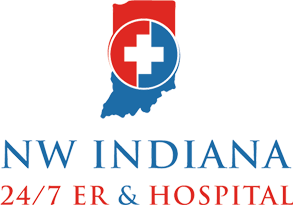Recognizing Signs That Indicate When Individuals with Common Chronic Pain Conditions Require Immediate Medical Attention
Describing pain and fully explaining how you feel can be challenging, even when speaking to a physician. For those with chronic pain, especially due to a diagnosed illness, the feeling of “suffering” may become so routine that they start to consider it normal or manageable. However, it’s important to remember that chronic pain can fluctuate, and recognizing when it escalates to an emergency can be lifesaving.
What is Chronic Pain?
Chronic pain is different from acute pain, which is the short-term discomfort you experience due to an injury or during the healing process. Chronic pain can go on for months and even years, extending well beyond the usual recovery period. It can be continuous or seem like it comes at random times often linked to underlying medical conditions or physical damage to tissues or nerves.
Individuals with chronic pain may struggle to differentiate between their pain symptoms as they become so common over time. It’s essential to recognize the signs that indicate the pain is worsening, as this can signal the need for emergency medical attention.
Common Chronic Pain Medical Conditions
1. Arthritis
Arthritis involves inflammation in the joints, leading to pain and stiffness that affects movement, even making it difficult to walk and stand at times.
2. Diabetic Nerve Pain
People with diabetes can develop nerve damage due to high blood sugar levels, which causes significant pain.
3. Fibromyalgia
This condition causes widespread pain in muscles and tissues, often accompanied by sleep disturbances and cognitive difficulties.
4. Chronic Back Pain
Back pain can arise from poor posture, spinal conditions, or previous injuries, significantly affecting daily activities.
5. Migraines
Chronic migraines can severely disrupt daily life causing intense, radiating head pain along with nausea and light sensitivity.
When Chronic Pain Becomes a Medical Emergency
Although many people with chronic pain are accustomed to managing their symptoms with medication or lifestyle changes, certain signs can indicate that your pain is signaling a more serious issue. Here’s when you should seek immediate medical attention:
Sudden Increase in Severity of Pain
If your pain suddenly escalates, becoming much more intense and difficult to control, it may indicate a serious underlying condition.
Loss of Mobility or Function
Sudden inability to move or perform daily tasks, even when managing chronic pain, may suggest a severe issue that requires immediate care.
Onset of New Symptoms
Chronic pain accompanied by symptoms like fever, redness, swelling, or warmth in a specific area may suggest an infection, which could be life-threatening and require prompt treatment.
Neurological Complications
If chronic pain is paired with numbness, tingling, weakness, or changes in vision or speech, this could point to neurological complications and signal another medical complication on the rise.
Chest Pain
If your chronic chest pain worsens, particularly if accompanied by shortness of breath, sweating, or pain radiating to your arm or jaw, it could be a sign of a heart attack. Immediate care is important in the case of a heart attack as time is crucial in preventing further damage and can be life or death.
When chronic pain evolves into a medical emergency, it is important to receive quick and effective care. At NW Indiana ER & Hospital, our expert team is dedicated to providing fast, compassionate treatment to help you and your loved ones feel better quickly. Our state-of-the-art emergency room is equipped with advanced laboratory and imaging technology, allowing us to diagnose and begin treatment rapidly to alleviate pain and address any underlying issues.
We are open 24/7/365, including holidays, and are committed to your health and well-being. If you are experiencing a medical emergency, we are here.
Disclaimer: As a service to our readers, NW Indiana ER & Hospital and Nutex Health state no content on this site, regardless of date, should ever be used as a substitute for direct medical advice from your doctor or other qualified clinician.



0 Comments